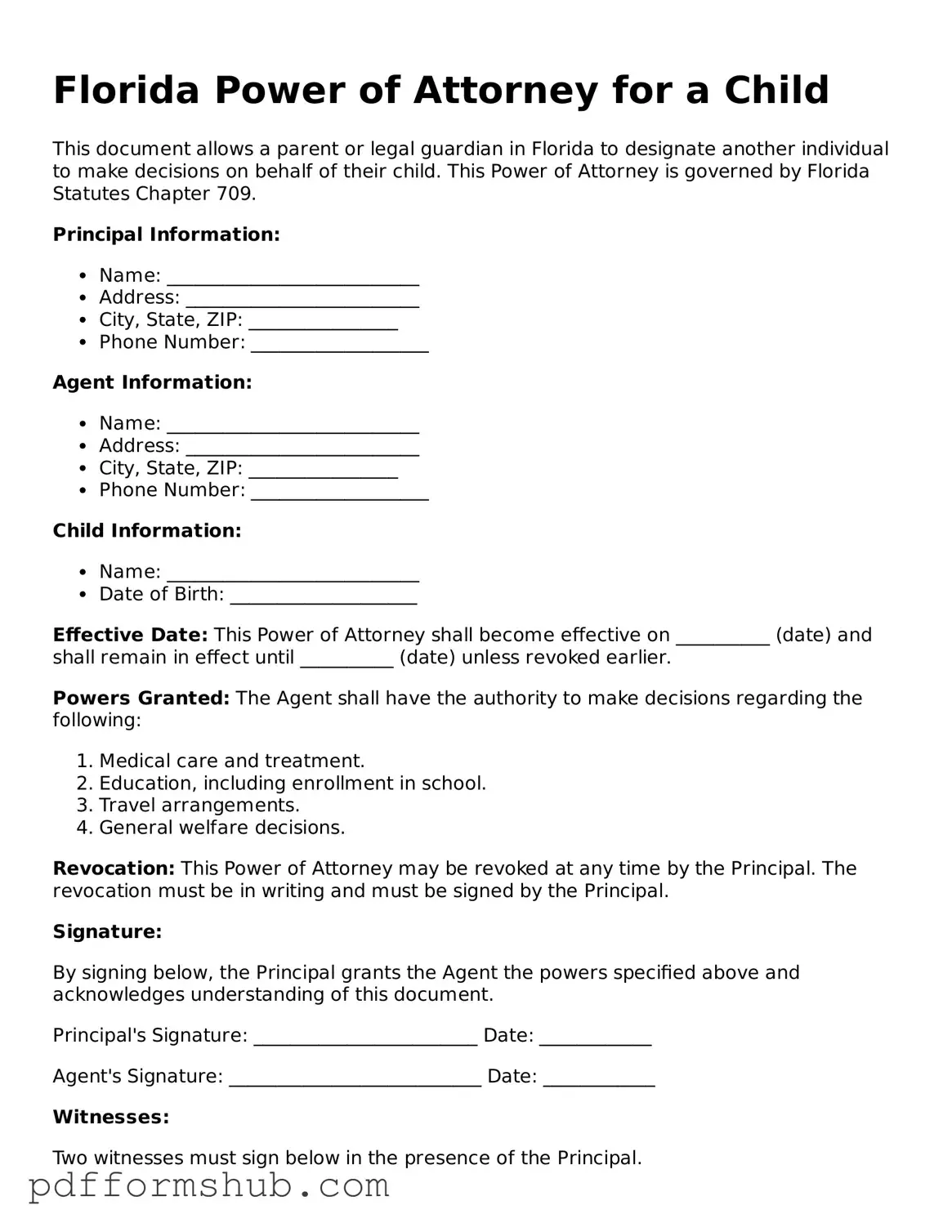Attorney-Verified Power of Attorney for a Child Form for Florida State
The Florida Power of Attorney for a Child form is a legal document that allows a parent or guardian to grant temporary authority to another adult to make decisions on behalf of a minor child. This arrangement can be particularly useful in situations where the parent is unavailable, such as during travel or medical emergencies. To ensure that you have the necessary authority in place, consider filling out the form by clicking the button below.
Customize Form

Attorney-Verified Power of Attorney for a Child Form for Florida State
Customize Form

Customize Form
or
Free PDF Form
Short deadline? Complete this form now
Complete Power of Attorney for a Child online without printing hassles.